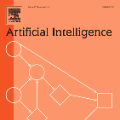In decision support applications of AI, the AI algorithm's output is framed as a suggestion to a human user. The user may ignore this advice or take it into consideration to modify their decision. With the increasing prevalence of such human-AI interactions, it is important to understand how users react to AI advice. In this paper, we recruited over 1100 crowdworkers to characterize how humans use AI suggestions relative to equivalent suggestions from a group of peer humans across several experimental settings. We find that participants' beliefs about how human versus AI performance on a given task affects whether they heed the advice. When participants do heed the advice, they use it similarly for human and AI suggestions. Based on these results, we propose a two-stage, "activation-integration" model for human behavior and use it to characterize the factors that affect human-AI interactions.
翻译:在支持AI的决定应用中,AI算法的输出是作为向人类用户提出的建议而设计的。用户可能忽略这一建议,或考虑它来修改其决定。随着这种人类-AI互动的日益普遍,了解用户如何对AI建议作出反应非常重要。在本文中,我们征聘了1100多名人群工人,以说明人类如何使用AI建议,与多个实验环境中的同龄人群体提出的等同建议相对应。我们发现,参与者对于人类与AI在特定任务上如何表现的信念影响他们是否听从建议。当参与者确实听从建议时,他们也同样使用该建议来对待人类和AI建议。基于这些结果,我们提出了两阶段的人类行为“活化-融合”模式,并用它来描述影响人类-AI互动的因素。



